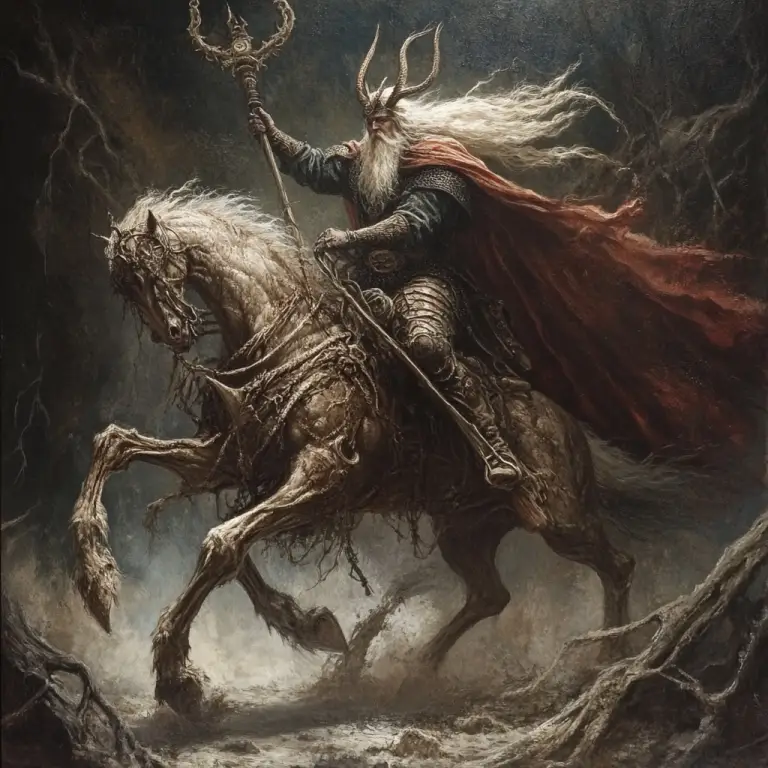Sleipnir – The Eight-Legged Horse of Norse Mythology
In Norse mythology, Sleipnir is the legendary eight-legged horse belonging to Odin, the Allfather and ruler of the Aesir gods. Known for his incredible speed, strength, and ability to travel between the realms, Sleipnir is one of the most extraordinary creatures in Norse lore. His unique origins and role in myths make him a symbol of power, transcendence, and divine connection.
Who Is Sleipnir?
Origins
Sleipnir’s story begins with Loki, the trickster god, who transformed into a mare to distract the giant Svaðilfari’s stallion.
Loki, in his mare form, became pregnant and later gave birth to Sleipnir.
Despite being the child of a shapeshifting god, Sleipnir was a gift to Odin, becoming his steadfast steed and one of his most loyal companions.
Physical Characteristics
Sleipnir is described as a grey horse with eight legs, making him exceptionally swift and capable of feats no other horse could perform.
His eight legs symbolize balance, stability, and his transcendent nature, allowing him to traverse realms effortlessly.
Sleipnir’s Role in Norse Mythology
The Ultimate Steed
Sleipnir is considered the greatest of all horses, unmatched in speed, endurance, and agility.
He can travel through the nine realms of Yggdrasil, including Asgard, Midgard, and Hel, with ease.
A Companion of Odin
Odin rides Sleipnir during his journeys as a wanderer or in battle, reinforcing his role as a leader of gods and humans alike.
Together, they symbolize divine authority and the connection between realms.
Hel’s Domain
In one myth, Sleipnir carries Hermóðr, Odin’s son, to the realm of Hel during an attempt to retrieve Baldr, the god of light and purity, after his untimely death.
This emphasizes Sleipnir’s role as a bridge between life and death.
Sleipnir in Mythological Texts
Prose Edda
In the Prose Edda, Sleipnir is mentioned during the tale of his birth and in other stories as Odin’s trusted steed.
The text highlights his unmatched abilities and connection to Loki’s shapeshifting antics.
Poetic Edda
The Poetic Edda contains references to Sleipnir’s role in journeys between realms, particularly in the myth of Baldr’s death.
Fun Fact
Sleipnir’s name means “The Slipper,” hinting at his incredible swiftness and ability to move effortlessly across realms and terrain.


